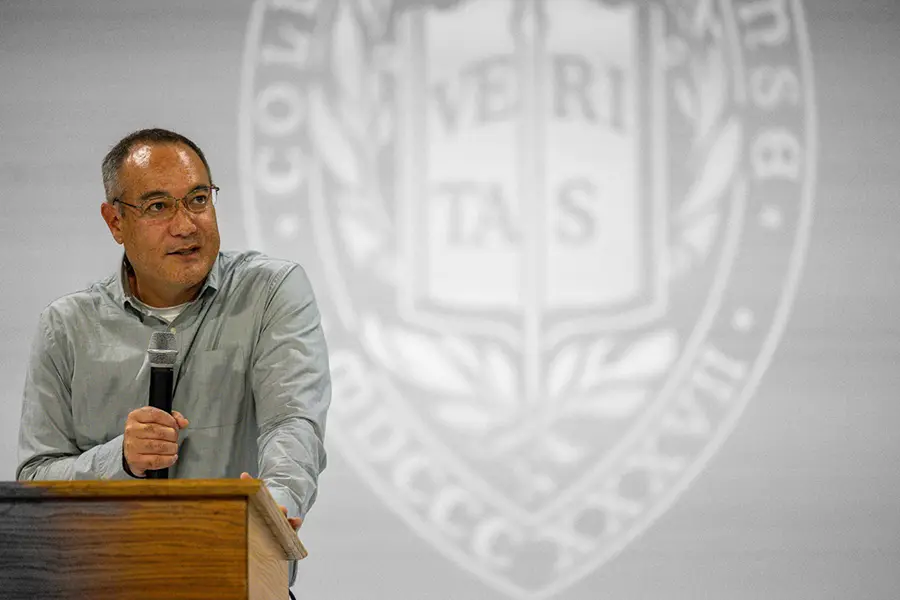

Constitutional Scholar John Inazu Speaks to Knox First-Year Students
Published on September 30, 2025
- Scott Holland, Knox College Office of Communications


Published on September 30, 2025
- Scott Holland, Knox College Office of Communications